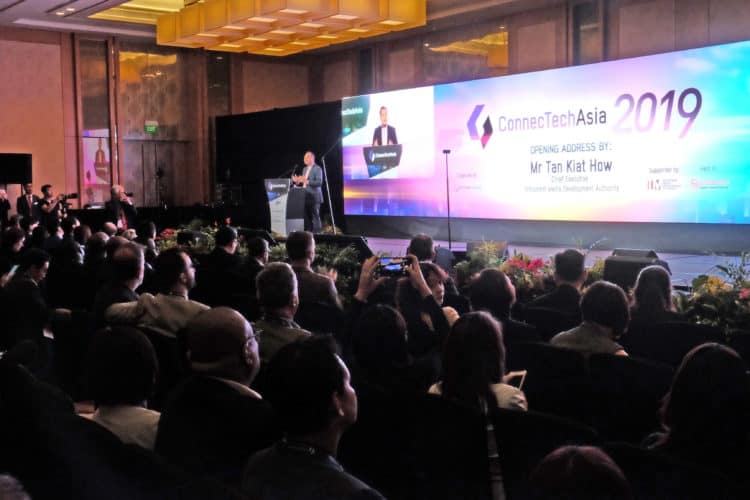5G emerged as the show stealer at the recently concluded ConnecTechAsia, which comprise three events BroadcastAsia, CommunicAsia, and NXTAsia.
IMDA’s Chief Executive Tan Kiat reiterated Singapore’s vision for 5G – as an enabler that supports the development of innovative applications and services that will power the country’s digital economy.
With 38,000 attendees and 1,700 exhibitors over two venues this year, ConnectTechAsia also highlighted the technological convergence that is taking place across Asia is giving rise to the emergence of smart cities in the region.
A growing priority for governments, smart cities are seen as a sustainable way forward for Asia as it grapples burgeoning populations, rapid urbanization and increasing pollution, according to the organizer of the conference.
During the conference, ConnecTechAsia, Smart Cities Network, and Smart Cities Council India have also signed an agreement on ‘The Digitally Twinned Smart Cities Initiative.’
The memorandum of understanding (MoU) covers the planning, design, construction, operation and maintenance of “Digitally Twinned Smart Cities,” and several cities in the Asean and India.
“Asia presents a diverse yet perfect setting for the growth of smart cities, given its populous and digitally savvy demographics,” says Kok-Chin Tay, Chairman, Smart Cities Network (SCN) Singapore.
“The journey through Indian Smart Cities is propelling innovation and start-up culture as challenging sustainable options are competing for attaining priority in execution,” added Pratap Padode, Executive Director, Smart Cities Council India.
Technologies such as Virtual Reality (VR) likewise generated buzz on the show floor, with Korea’s Salin Co. inking a deal with Singapore’s Green Lab to bring its EpicLive VR education platforms to international schools in Singapore and regional Asian countries.
Kenny Tay, Director of Green La, said besides adding a dimension of fun to learning, VR allows teachers to use a more visual approach to help students understand concepts and engage with each other, leading to more memorable and better learning outcomes.
Meanwhile, Malaysia’s MEASAT Satellite Systems announced an agreement at ConnecTechAsia to carry India’s first 4K/UHD channel and the world’s first 4K/UHD HDR travel channel, Travelxp.
Acknowledging how emerging technologies will play a pivotal role in shaping future societies, Dr. David Soldani, Expert, CTO Office, Huawei Southern Pacific Region, said the ultimate goal is providing people and homes with a full immersive experience.



